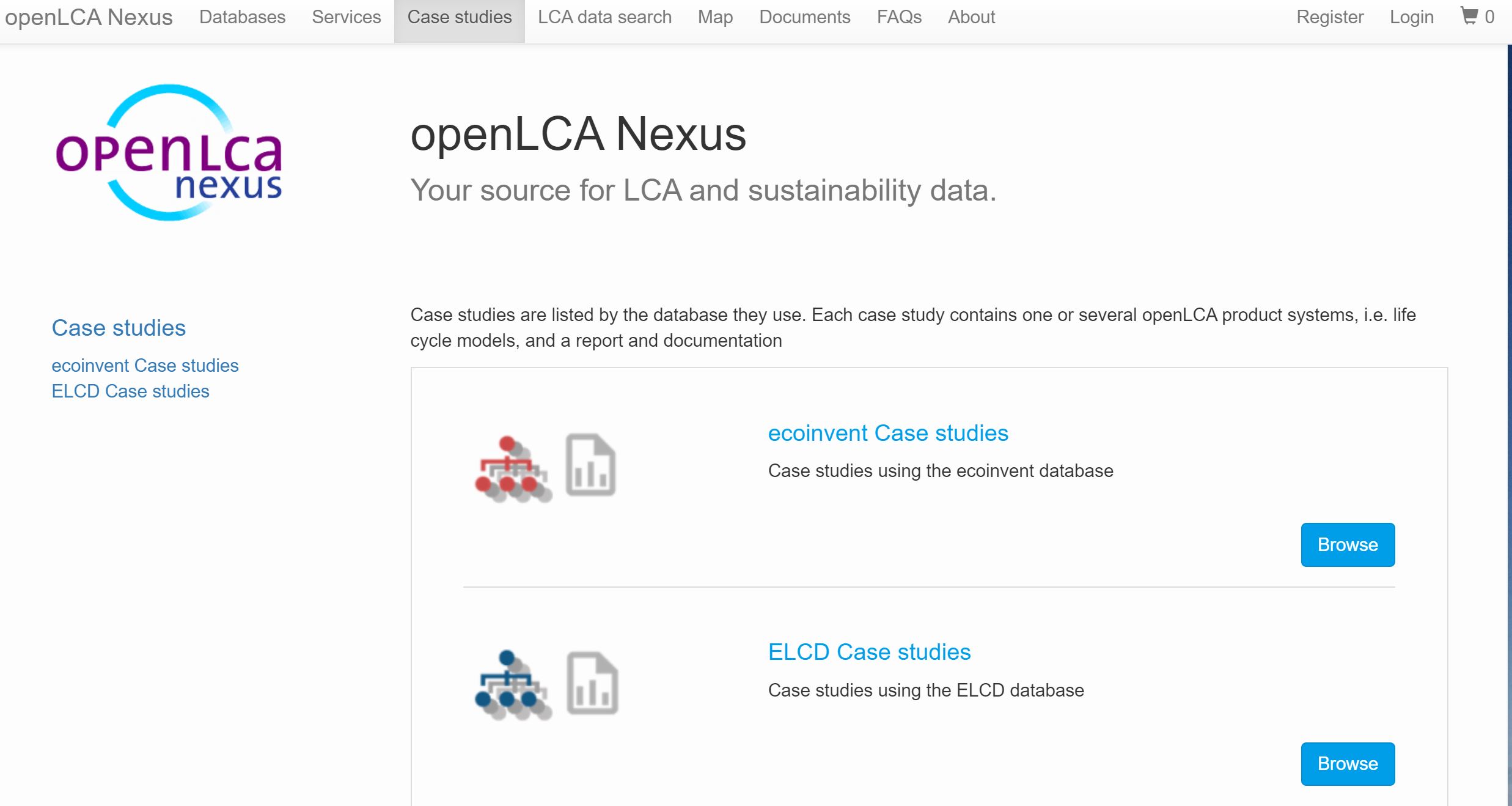For some time now, we have the vision of providing an opportunity to not offer the download of LCI databases for use in openLCA but also complete case studies. Many LCA practitioners might have been working on case studies during the past years, with a noteworthy outcome and without confidentiality restrictions. Other LCA experts might be working on a similar LCA topic and could benefit from that work by simply using the existing case study as a basis for their modelling in openLCA and for data collection.
For this reason, we have now established a case study section on openLCA Nexus that should in the long run turn into something like a marketplace – just that you sell and buy life cycle models and case study documentations instead of fruits or cloths.
First, let us clarify what we understand under the term case study. We speak about LCA case studies of course, studies that investigate the life cycle of a product or service. We expect these studies to follow the ISO 14040 guidelines, i.e. to include a description of the Goal & Scope, the inventory analysis and the supplementing life cycle model in openLCA, a description of the results, and last but not least an interpretation that aligns with the set Goal of the study.
In openLCA, we have the element level “product systems” which are specifically modelled life cycles, i.e. a specific series of processes (see the following screenshot of a model graph in openLCA). These product systems can be calculated and analysed in openLCA. A case study would hence consist of at least one product system (could also be more), the used processes and flows, and a documentation for the Goal & Scope, results and interpretation.

At the moment, there is a hand full of case studies available on openLCA Nexus, e.g. a case study on different scooters, bike sharing, LHVs, ceramic cup vs. paper cup, the renovation of a park, and bottle production.
The case studies are categorized, depending on the used background database. This allows browsing for case studies with regard to the licenses that you have. A nice additional feature is the possibility to browse for case studies in the LCA data search, using the same filter functions as for background databases.

A marketplace of course becomes lively only with actors. That´s why we would like to invite you to take a look at the new platform and provide feedback. We encourage you to also share your case studies via Nexus. If you´re interested, the following questions will arise sooner or later:
How can I share a case study via Nexus?
If you´re interested in sharing a case study via Nexus, please get in touch with us via gd@nullgreendelta.com.
We will ask for a documentation of the case study and the .zolca database which includes the life cycle models and elements. Further, you will need to fill a questionnaire for your case study so that we can categorize it in Nexus. If you want to get compensated for your work (which is totally legitimate), we will also discuss a revenue model with you.
How can I download a case study on Nexus?
All available case studies are listed on openLCA Nexus (make sure you have an account). All elements of the life cycle model are comprised in a .zolca database which you can easily download via openLCA Nexus and restore in openLCA in order to work with it.
If the case study uses a background database that is licensed (e.g. ecoinvent), Nexus will automatically check if you are in possession of the respective license. In addition to the database, you can download the documentation.
The complete procedure is demonstrated in a YouTube video.
We´re excited about how this platform will develop over the upcoming months and are happy about any feedback!